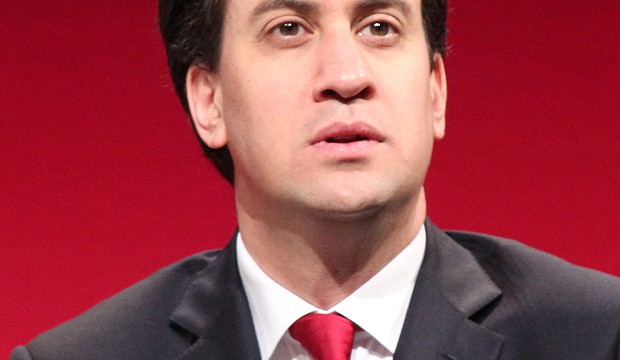The official ties between The Labour Party and the trade union movement have returned to the headlines over the last few weeks. The major union Unite has been accused of having too much control over the selection process for the Falkirk candidate for the 2015 general election. They have attempted to artificially pack the constituency with their own supporters in order to ensure their candidate’s selection. This has caused the Labour leadership to not only investigate this specific instance of corruption, but to examine the general relationship between the party and unions.
Fortunately, Labour leader Ed Miliband is facing the issue head on and is seeking to make a symbolic breakthrough. This is despite owing his position as head of the party to union support; he was officially endorsed by the unions, and members were all encouraged to vote for him. One of his predecessors, Tony Blair, had done significant work in severing ties; during his administration, union donations ceased to make up the majority of funding.

Although the trend in donations has since reversed, the political influence of unions has generally declined since the 1980s. Their overall donations have decreased, while donations to the party from other sources have increased. However, there is no doubt that the unions still hold notable sway over the party. Blair’s 1997 manifesto was even submitted for approval to union leaders.
There is nothing intrinsically wrong with a special interest group influencing a political party. Political parties should be free to associate themselves with and accept funding from anyone they choose. It is also true that the unions and Labour have a shared history; the party itself emerged from a combination of organised labour and Fabian socialism.
However, unions have not only become significantly less influential than they were, but also less legitimate as representatives. While in 1979, the majority of the workforce was affiliated with a union, now only a small minority are. According to these data, membership peaked at 13.2 million in 1979; by 2012, according to the Trades Union Congress, it had fallen to 5.98 million. Further, only a minority of members are actively involved in their unions, which might explain why the maladroit Bob Crow and Len McCluskey are in positions of responsibility. McCluskey was actually elected to his position as General Secretary of Unite in an election with only 16% turnout. The notion that the unions can speak for the ‘working class’ as a whole is now impossible to take seriously, if indeed it was ever a fair assumption.
Further, talking about ‘union influence’ can be misleading, as if unions as a whole hold sway over Labour. In reality, it is only the larger unions like Unite, along with the General Council of the Trades Union Congress in general, who are able to exert effective political pressure. Also, decisions in these organizations are made by the leadership, not at a grassroots level. This is particularly significant given the extreme views and limited legitimacy of leaders like McCluskey and Crow.
On the surface, this influence seems no different from the role of individuals who donate large amounts. The Conservative Party, for example, receives the bulk of its donations from wealthy individuals, who arguably shape its policies. In both cases such influence can only go so far, assuming the party still values its electoral performance and the continued involvement of its other stakeholders. Furthermore, if funding is received voluntarily, then there is no moral problem. There is no justification for any form of ban or regulation on party funding.
However, the details of union influence on Labour are worrying and do much to undermine the party’s credibility. Where internal elections and selection processes are actively rigged by the unions, and less than credible courses are chosen, it is necessary for the party to self-regulate to avoid electoral failure. It is unwise for a party that wishes to be seen as a ‘broad-church,’ or even administratively competent, to be so influenced by the whims of unreasonable fringe elements.
Additionally, detachment from Labour could facilitate positive reforms for the unions themselves. The current relationship with Labour is as detrimental to the unions as it is to the party. At present, all union members make an automatic £3 annual donation to Labour, as a portion of their union membership fee is set aside for this. These donations add up to £3.23 million annually from Unite alone. This is not mandatory, but the responsibility lies with the individual member to actively opt to withdraw their donation.
Miliband proposes a reform to this system which would be beneficial to union members. Rather than needing to opt out, members would choose whether to opt in. Joining one organisation would no longer require your affiliation with another which you might not identify with. McCluskey claims that this would cut donations to £250,000 annually. However, any such change would be depend on the free decisions of union members, and this would treat their individual political perspectives with more respect.
Disaffiliation would also bring benefits for unions as organisations. Firstly, allowing for a variety of political views within any large movement promotes healthy debate and better reflects the intrinsic diversity in any group. Secondly, as independent organisations, the unions could freely carve out their identity and ideology without having to consider the impact on, and reaction of, the wider labour movement.
This issue is ultimately one that has to be solved by Labour and the unions. Both institutions should be free to put into place whatever internal organisation and external associations they wish. However, the current relationship between Labour and unions is unhealthy, undemocratic and unsound, and damaging to both.
Photo credit to www.thesun.co.uk.

